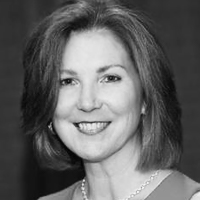Question
What are the two levels of the Healthcare Common Procedure Coding System?
Answer
The first coding system is the HCPCS codes. We have HCPCS Level I and their current procedural terminology. However, we rarely hear that phrase being used, usually we hear “CPT codes”. So, HCPCS Level I is CPT codes. HCPCS Level II are codes that are used to report supplies, equipment and other devices. For SLPs, and especially for those of us specializing in voice, that would include our TEP supplies or electrolarynx. It also applies to alternative and augmentative communication devices as well.
HCPCS Level I - Current Procedural Terminology (aka CPT Codes)
These are codes that represent every medical, surgical, and diagnostic procedure that we have, and they are assigned a five digit code. A CPT code represents what we do, current procedural terminology, what procedures we are going to perform or provide to the client and the patient.
Why do we have these CPT codes? They provide a common language among all providers, our payers and administrators. They give a standardized descriptions of procedures. They also provide data for the government to look at our utilization patterns; such as who's billing this procedure? How many times is this procedure being used? How many times has one procedure combined with another procedure? Additionally, these codes provide a lot of data for health-related research.
At this time, there are actually over 10,000 CPT codes. It's important to remember that CPT codes - this HCPCS Level I - is developed, maintained, and copyrighted by the American Medical Association, not the government. It is owned by the American Medical Association, and is actually a continuous process which gets updated annually.
HCPCS Level II - Supplies, Equipment, Devices, and Procedures not found in the CPT system, e.g., durable medical equipment (DME)
Level II refers to the supplies, equipment, devices and any procedures that are not found in the CPT system. Durable medical equipment is found under Level II. This is administered by the Centers for Medicare and Medicaid Services, not by the American Medical Association.
These codes begin with a single letter, and are followed by four numbers. For example, for voice and voice disorders, the most common would be perhaps the code for artificial larynx, any type which is an L8500. There's also a code for tracheoesophageal voice prostheses (L8509) which are grouped by the type of service or the supply that they represent.
These codes are also updated annually, and there are also Medicare claims for E and L codes and V codes, which all fall under the jurisdiction of Durable Medical Equipment Medicare Administrative Contractors (DME MACs).
For more information on any of the coding systems, there is a reference that is freely available on the ASHA website where all these things are listed and explained: www.asha.org/practice/reimbursement/coding/hcpcs_slp/.
Please refer to the SpeechPathology.com course, Unique Coding, Billing, Reimbursement, and Supervision Issues for SLP Voice Specialists, for more in-depth information on the unique coding, billing and supervision issues specific to SLPs who provide behavioral and qualitative analysis of voice, instrumental laryngeal assessments, and therapeutic intervention of voice and upper airway disorders.

